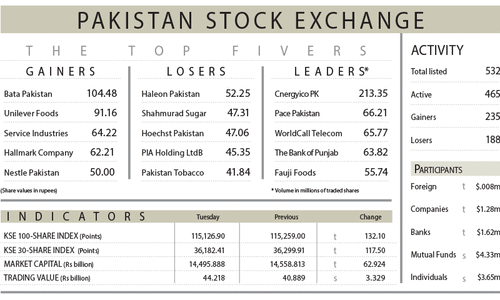ISLAMABAD, Dec 10: The caretaker government has concluded that petrol price has to be increased by Rs17 per litre to rein in the mounting fiscal deficit, but is hesitant to do that in the midst of the election fever.
Informed sources told Dawn on Monday that one group in the government, which also included Finance Minister Dr Salman Shah, was pushing for urgent adjustments in oil prices while others wanted to leave it to the incoming elected government administer the bitter pill.
Sources said that the government, which had earlier planned to increase oil prices either in the last week of November or in the first week of December, was in a fix to decide the issue.
“You cannot ignore the political implications of raising oil prices at this stage, especially when electioneering is gearing up and the PPP, the PML (N) and the PML (Q) have finalised their plans to take part in Jan 8 polls,” a source said.
However, when contacted, the finance minister said that the government could announce adjustments in oil prices before or after the elections.
“The earlier, it is the better; it would be for the economy,” he added.
“This is correct that we need to enhance oil prices by Rs17 per cent per litre, but this will heighten inflation and create problems for the people,” Dr Shah said.
But he said that the government would have to adjust oil prices during the next seven months to avoid increase in fiscal deficit. He said fiscal deficit target of four per cent set for 2007-08 would become unmanageable, if these oil prices were not adjusted in time.
“Once it is decided to increase oil prices, this is will have to be done every month,” the finance minister said.
Responding to a question, he pointed out that oil prices would be increased through various combinations so as to have minimum negative impact.
He was of the view that oil consumption will have to be reduced to avoid increasing economic problems.
“For us this is a painful process to finalise oil price increases,” Dr Shah said, adding that efficiency of oil companies was also needed to be improved to address the issue.
He said the government was paying Rs14 billion per month subsidy on oil which has reached over Rs40 billion.
“And this cannot go on like this and we will have to decide something about it.”
Responding to a question, he said that the government planned to arrange “bridge financing” for oil companies on the pattern of Pakistan State Oil (PSO) which got Rs12 billion to clear its past dues.
The government, the finance minister said, would recover its money to be offered in the shape of bridge financing over a period of some longer years. This was how the government could avoid problems for both the oil companies and the people at large, he added.
Asked whether there will be an additional 1.9 per cent fiscal deficit if the government did not revise upward oil and electricity prices, he said the issue was very important and complex which required decision on urgent basis.
He said that fiscal deficit was reduced from seven per cent of the GDP in 1990s to an average 3.5 per cent during the last six years. “But it will increase if there is no increase in oil prices,” he warned.













































Dear visitor, the comments section is undergoing an overhaul and will return soon.